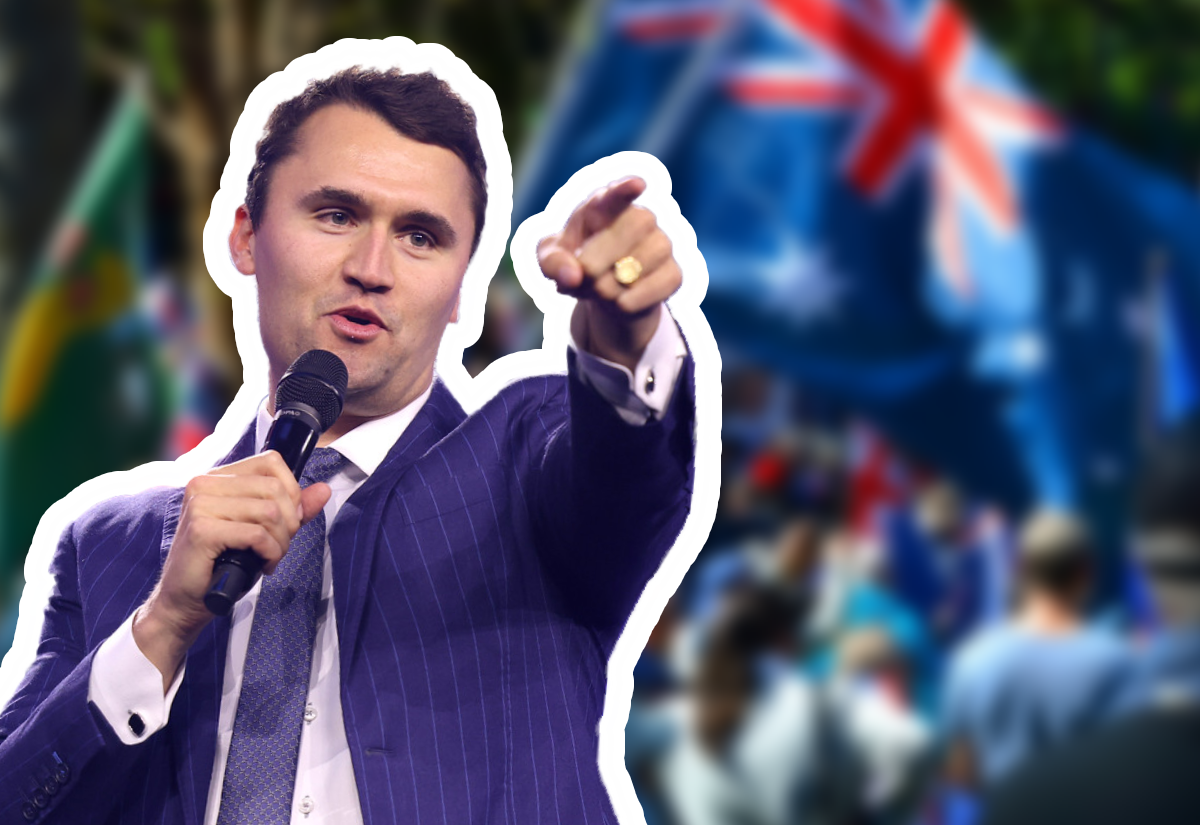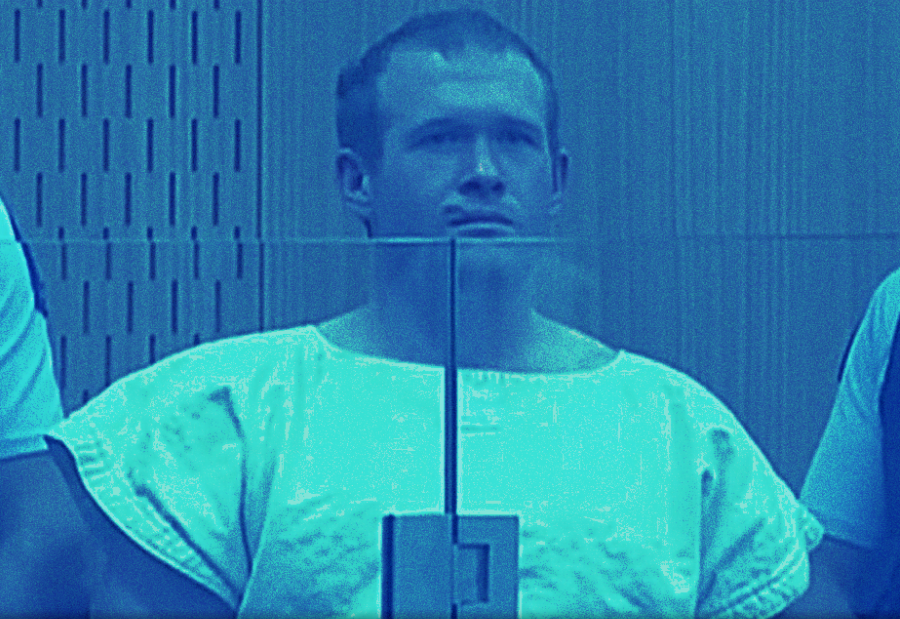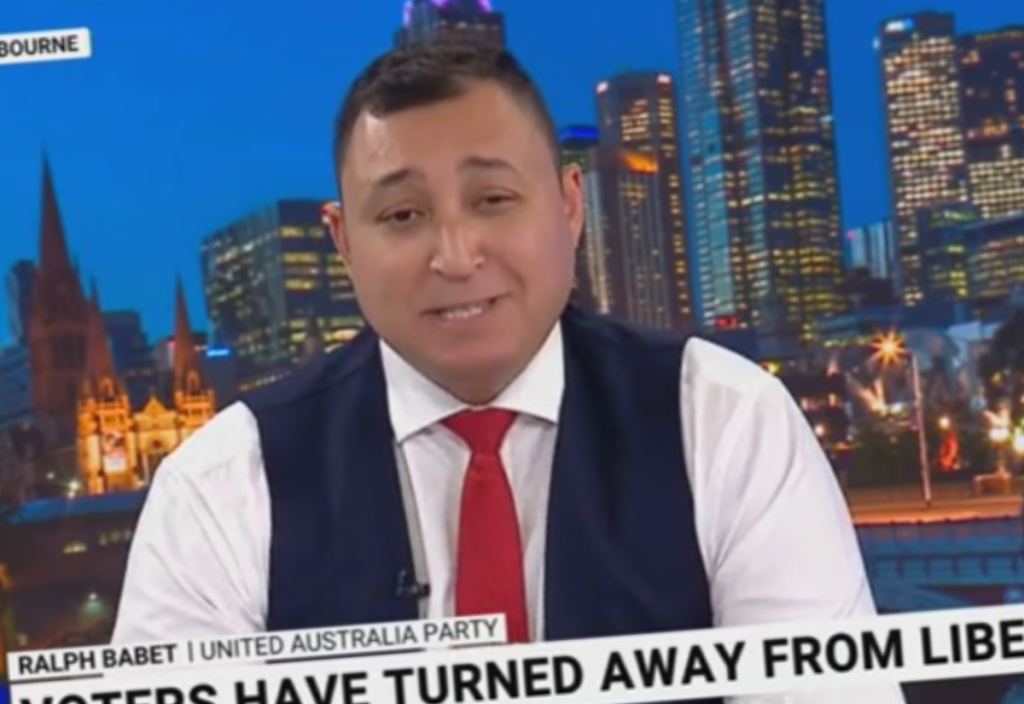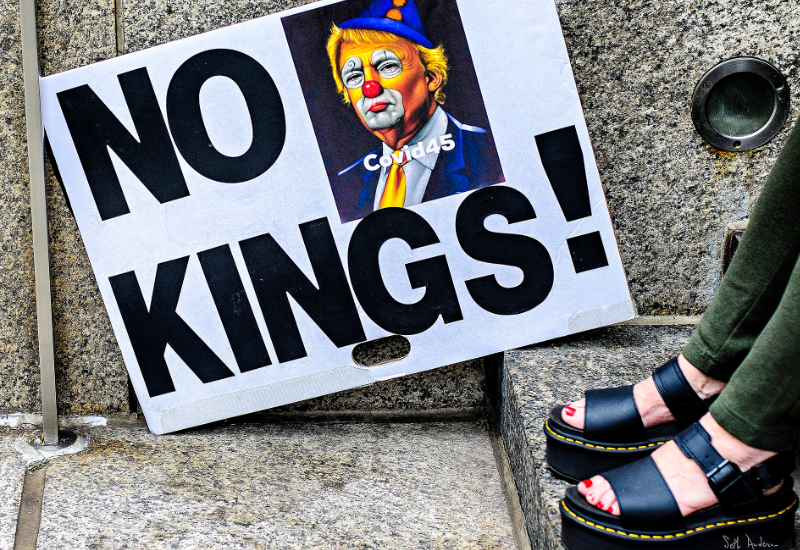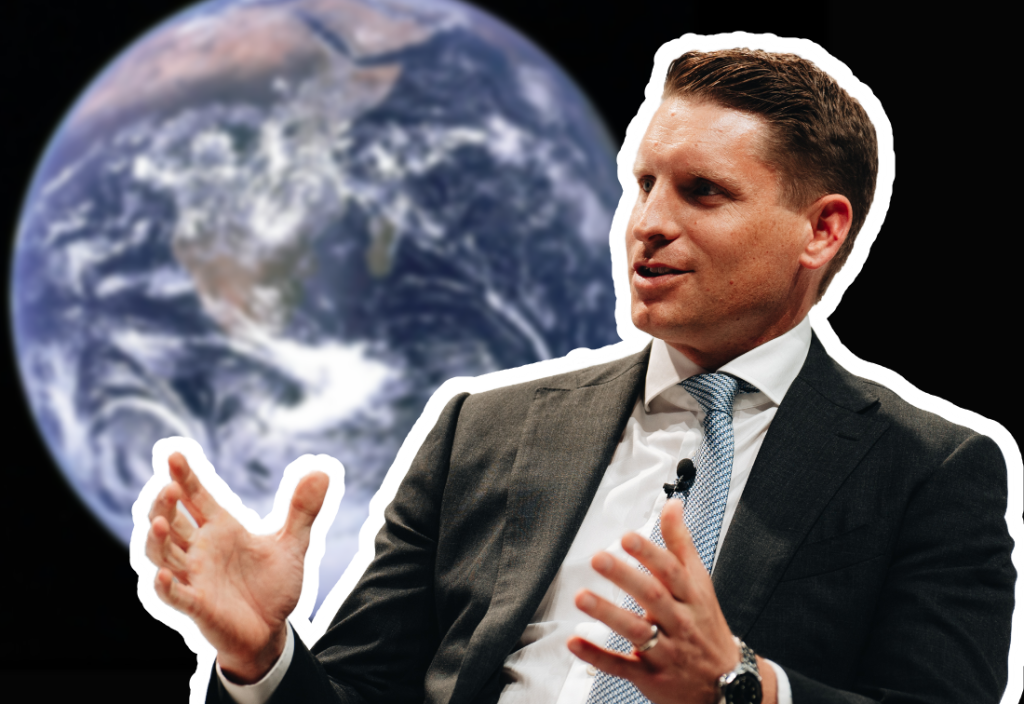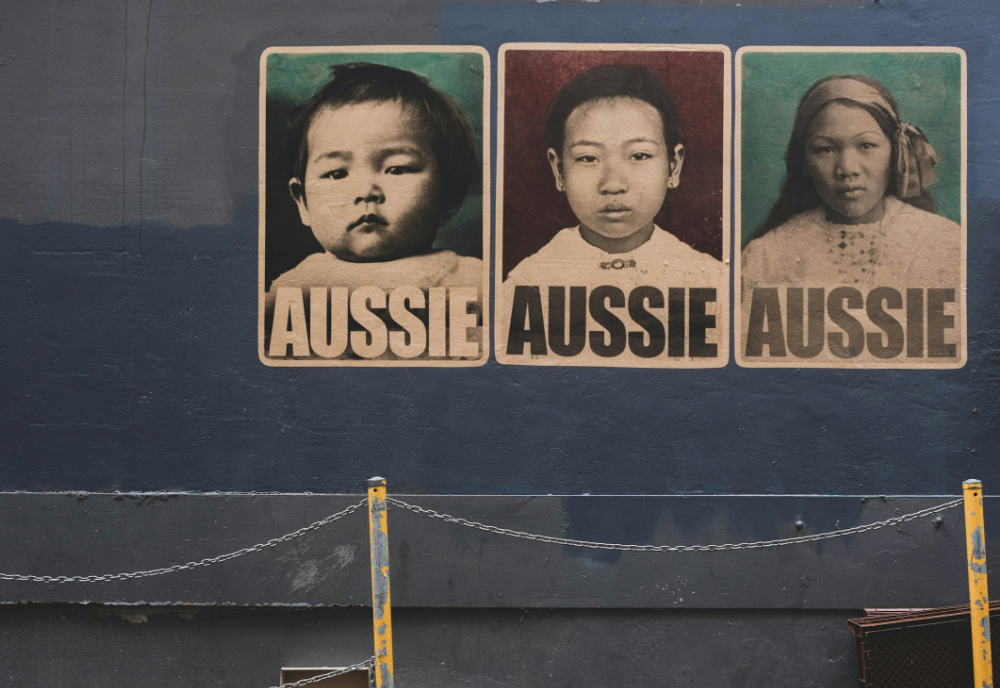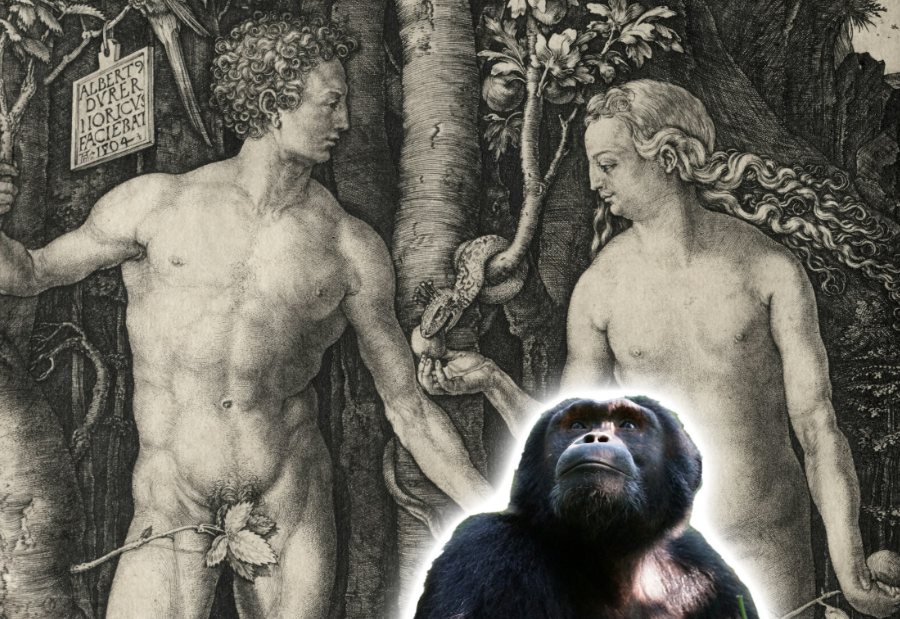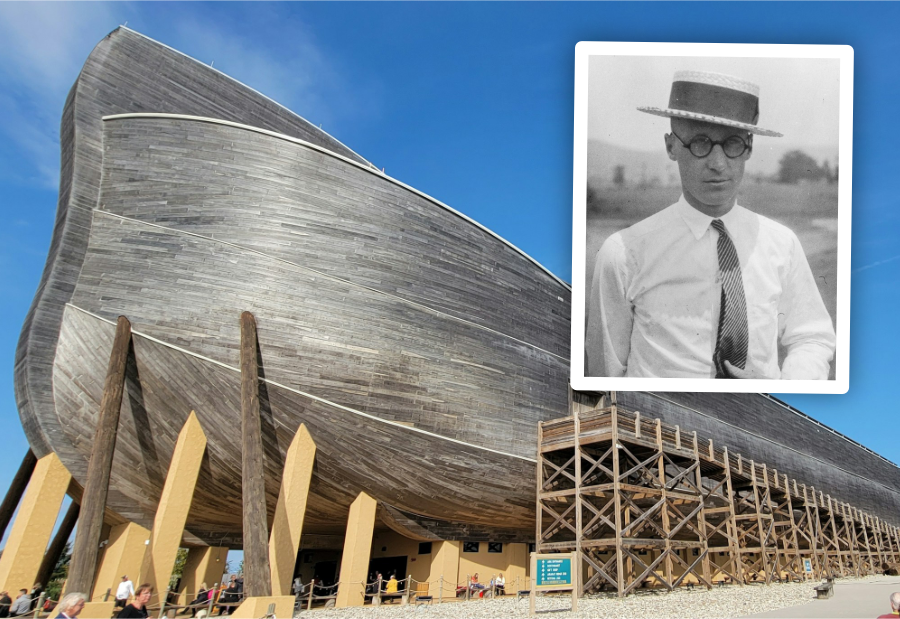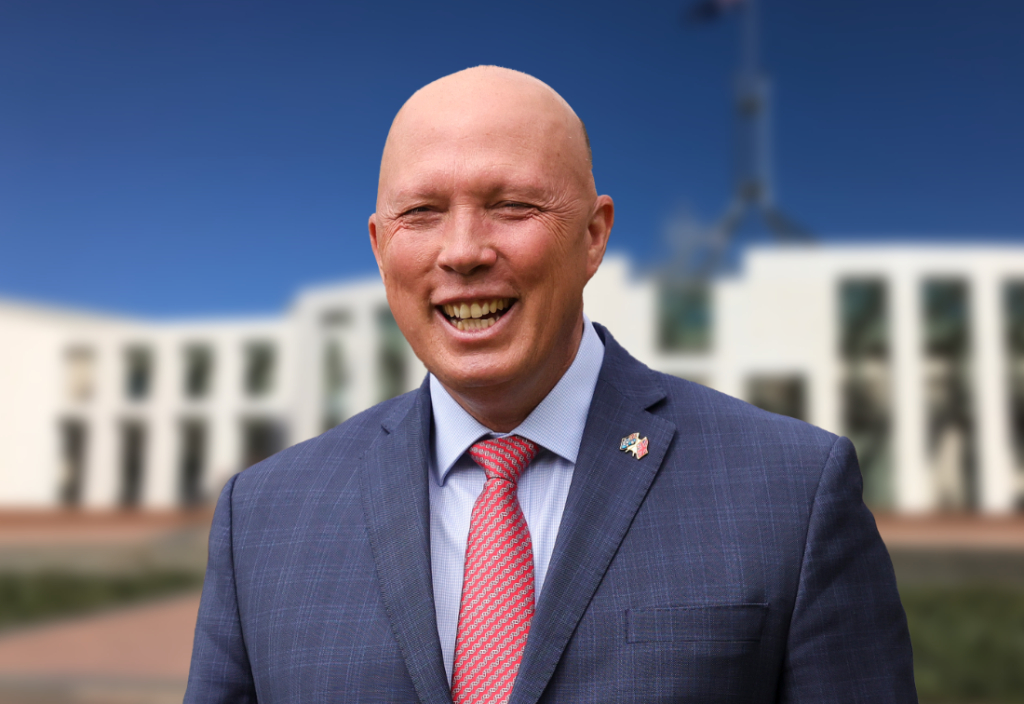Up until 26 August 2025, white Christian nationalism may have remained an abstract concept – something that happens in America, but not here. But within days of Dezi Freeman (allegedly) turning his gun on two Victorian Police officers, the Sovereign Citizen movement was pushed into national awareness, and another seemingly unrelated event was about to take place. The ‘March for Australia’ rallies of 31 August brought together an uncomfortable picture.
Those in the know were already aware that the Sovereign Citizen movement didn’t exist in a silo. Nor did neo-Nazism. Nor did far-right Christian fundamentalism. ‘Jesus Wins’ was soon emblazoned on a banner at a neo-Nazi march attended by supporters of Dezi Freeman.
Ten days later, Charlie Kirk was assassinated in the United States.
While right-wingers praised the conservative apologist, left-leaning influencers were criticised for pointing out that he had lived by the proverbial sword and died by it. This was a man who had said some gun deaths were necessary and that if his daughter were raped and fell pregnant she should be forced to carry that child to term.
Kirk had also incorrectly alleged that “prowling blacks go around for fun to go target white people”, and that immigrants “will go into your communities and break into your homes and rape your women and take your children.” He claimed birth control made women angry and bitter, and opposed diversity, equality and inclusion (DEI) among many other ills.
The March for Australia rallies occurred after news had broken of the neo-Nazi and white supremacist role in organising them, yet attendance was barely affected. On 14 September, five groups clashed in Melbourne’s CBD as a follow-up to a confrontation at Camp Sovereign, in which women had been punched by male Nazis.
Just three weeks prior, anyone warning of the dangers of white Christian nationalism would sound like an alarmist, a conspiracy theorist who looked at America and incorrectly thought it could happen here, too. Now, these voices have been vindicated in the worst possible way.
White Christian nationalism has been here in Australia for a long time, but three cultural moments have just combined into a significant cultural flashpoint. Putting that genie back in the bottle just became a significantly more challenging problem.
The Christian nationalist scaffolding
Fundamentalist indoctrination and perceived persecution are the scaffolding holding up the alt-right.
I am an ‘ex-vangelical’ Christian. I am an estranged pastor’s kid who grew up inside what I thought was a run-of-the-mill evangelical church. But I was homeschooled using a curriculum written by white supremacists which instructed young girls toward complete submission from lower primary school onwards.
I sang songs about laying down my life for the cause of Christ. I plotted political infiltration into conservative parties, stood for Family First, and I opposed LGBTQA+ rights, reproductive rights, and humanism or secularism. I believed the core doctrine of my church – that we were to take dominion in every domain and bring the government of God. I believed we were to bring Heaven to Earth.
I was typical of the Christian nationalist movement and I did not identify as racist, homophobic, or transphobic. I now concede the latter more easily. The first is a more uncomfortable realisation – a slow sinking stomach as I reflect on white-centric mission trips to brown communities, including indigenous communities, that I believed we were the answer for. I did not think I was racist, but had I not escaped I would have been anti-immigration still.
I would have believed, as Charlie Kirk did, that Islam was the “sword the left is using to slit the throat of America”. I would have substituted ‘Australia’ in that sentence. I would have believed The Handmaid’s Tale was a tactic of the enemy to stop the manifestation of God’s government.
I would have equated the pro-Palestine movement with terrorism and the pro-Israel movement as righteous. Use of the term ‘genocide’ against Benjamin Netanyahu would have been viewed as hyperbolic to the point of hysterical.
As a woman, I’d have likely been used as a palatable apologist for the advancement of these regressive and problematic ideas, as women just make better banner-bearers for this cause.
Just look at Moira Deeming, doyenne of the anti-trans movement, or Erica Kirk, who will likely catapult from martyr’s wife to political hero in America. These women are the prettier mouthpieces of a dreadful movement, as they can step into spaces where a man’s voice is shouted down for misogyny, and then can launch the patriarchy’s own grenade.
With all these things in mind, know this: I’d still not be the most dangerous adherent to the Christian nationalist or white Christian nationalist ideology. Why? I was not, and would never be, a disenfranchised white man who felt feminists and immigrants took what was owed to me. I would never enter the manosphere and be radicalised toward thinking women were at fault for my lack of sexual conquest, or that my ‘woman’ should live as my inferior sexual and domestic slave, and that feminism or progressivism had robbed me of that.
I would never have believed that there was no place in democracy for my ideas or that DEI efforts were at fault.
I was typical of any evangelical kid. But these kids are now grown up. We vote. We are parents, preachers, politicians, and activists. We were raised on American theologies and resources retranslated for an Australian context.
White Christian nationalism has been here in Australia for a long time, but three cultural moments have just combined into a significant cultural flashpoint. Putting that genie back in the bottle just became a significantly more challenging problem.
Increasingly, I am seeing Australian far-right influencers herald the likes of Trump and now Kirk as pattern-makers. Want a theocracy here? This is how you do it. And people are listening.
An apocalyptic worldview and a rising tide of end-times speculation only inflame this. When a perceived end-times urgency and a supernatural ‘mandate’ with eternal consequences combine, we cannot expect the right-wing to read the polling or the data that plots the consequences of their actions and repent. Nor can we expect them to scrutinise that proximity to Nazism is something that has gone down in history, too.
Those who supported Hitler “for their own reasons” and not for their support of the Holocaust do have their own name in the history books. They are called Nazis. And Hitler’s Mein Kampf is a playbook on how to win the propaganda wars.
We now know from research that the group of people most susceptible to misinformation and disinformation is the religio-political conservative right. We have watched as laws intended to limit public figures’ use of misinformation and disinformation have been argued down in Australia, as this same group cried out that this limited freedom of speech.
The steady march of evangelicalism into political spaces, be it here in Australia or elsewhere, has brought the doctrinal scaffolding I grew up with into civic discourse. With it, thought-stopping cliches like “the wisdom of God is higher than the wisdom of man”, or “God moves in mysterious ways”, or “touch not the God’s anointed”, or “the carnal mind is enmity with God”, have become banner statements by which reasonable debate has been silenced.
In its place, propaganda wars thrive. Empathy, a characteristic central to Jesus Christ himself, has been branded (by the likes of Charlie Kirk – a Christian) as “damaging” and “new age.”
On 31 August, “Jesus wins” was seen on a poster at the Canberra March for Australia rally attended by the Proud Boys, while Thomas Sewell took to the microphone at the pinnacle of the Melbourne event. Dezi Freeman’s face was held aloft on a poster in Melbourne. The collision of three movements was vividly illustrative of depth of our troubles.
Disenfranchised men
Disenfranchised white men, emboldened by the manosphere and the woke wars, are the bomb we now need to diffuse.
Late in 2022, Nine Entertainment’s Nick McKenzie launched a documentary on the neo-Nazi cells in our midst. In it, he said:
They’re in training for a race war. They’re what’s known as an accelerationist group. They’re trying to accelerate a mass societal conflict, and have their members armed and ready for when government collapses and the white man has to fight for supremacy. It sounds insane, but they have genuine adherents who believe they are training for a race war.
It does sound insane. Alarmist. Conspiratorial.
And, yet, the evidence is before us – now more compellingly than in 2022 when the documentary was launched. In that time, cost of living, a pandemic, wars, the online manosphere, and anti-trans movements have created the perfect storm.
All humans need belonging and identity. All of us feel powerless at some stage in our lives, and these cultural moments only exacerbate this. We now know from research that this powerlessness, when met with isolation, loneliness, and exposure to extremist ideologies – now made extremely accessible due to online platforms – creates a perfect environment for harmful ideas and networks to grow.
The inclusion of anti-trans movements in the laundry list above may have seemed odd. Yet its inclusion matters, as it’s an example of issues-based extremism. So too is immigration, even though data does not support the hysteria over housing, employment or cost of living.
What then do we do?
We must understand a few things here: a) the right-wing susceptibility to misinformation and disinformation; b) their resistance to polling, data or evidence in correcting these misconceptions; c) the persecution mindset drilled into evangelical Christians raised in rapture-believing or fundamentalist settings; and d) the way issue-based extremism overlaps with ethno-nationalist or separatist extremism.
These two groups share key similarities. They prefer uniformity over diversity, justify the use of violence over persuasion, and give orders instead of using dialogue. Political and religious ideologies can intertwine here, and we are likely to see that proof as further research into cults and fringe groups emerges in the coming years – especially on the back of the Victorian parliamentary inquiry into cults and fringe groups.
We must also understand that, while good Christians and good churches absolutely exist, the political centrist and progressive Christian group is dwindling both in numbers and voice. Watershed moments like the marriage equality plebiscite have caused deep rifts between those who seek kind, gentle faith, and those from fundamentalist iterations of faith, resulting in an initial exodus from centrist and progressive groups. The COVID-19 lockdowns enabled a secondary departure by habitual or cultural Christians who felt uncomfortable with associations between Christianity and opposition to science or social progress. All this has left the far right with the microphone, as centrists and progressives have stepped away from the podium and exited stage left.
I read Mein Kampf recently, though I loathe to say it. In its pages, I saw the propaganda playbook, and saw eerie similarities to the way Peter Dutton used woke-war propaganda to stoke the fires of discontent against the Labor government. I’m sure he didn’t mean it. I’m sure he hadn’t read that loathsome book. But he used propaganda to shape public opinion, using simple, emotionally charged messaging to unite people behind a cause. He reduced debate to emotive snippets. He hoped it would cause mass mobilisation to the Liberal Party, just like these same tactics that mobilised Trump’s voters.
Instead, we must grapple with the possibility that it may have just mobilised disenfranchised white men, and far-right religio-political conservatives in unhelpful ways.
The challenges currently facing US democracy only underscore the Mein Kampf similarities. Hitler, like the far and extreme right (here and in the US), railed against Marxism, criticised the government as weak and corrupt, and justified genocidal policies and invasions. He also argued that racism was justified in the context of economic hardship and cultural decline.
How then do we walk it all back? The religio-political centre is now the most important voice, and it isn’t loud enough.
Connection and community are vitally important, as is our understanding of what healthy connection and healthy community look like. Our understanding of the markers and warning signs of radicalisation matter now more than ever.
As policymakers step up to the plate and try to put this genie back in the bottle, we must centre the voices of those who lived in and left these groups. We must use their wisdom to help craft the solution, lest we misunderstand the drivers and pathologise the adherents as something other than disenfranchised, angry people who feel society has let them down.
The irony is that we can’t let them down again. The irony is that empathy is needed here, no matter the temptation to react in anger to the extremist ideas at play.
As for me, I joke that I’m now an atheist before 9am on a Monday and a Christian when I need to find a car park at a Westfield near Christmas. I cannot wear the brand ‘Christian’. But I pray.
I pray that we can exercise enough courage, empathy and understanding to move forward sensibly here. I pray we can recognise the threat and properly understand the motivations. Only then can we resist further polarisation and radicalisation.
Published 24 September 2025.
If you wish to republish this original article, please attribute to Rationale. Click here to find out more about republishing under Creative Commons.
Image: Gage Skidmore (Flickr CC); Kiros Amin (Unsplash)

